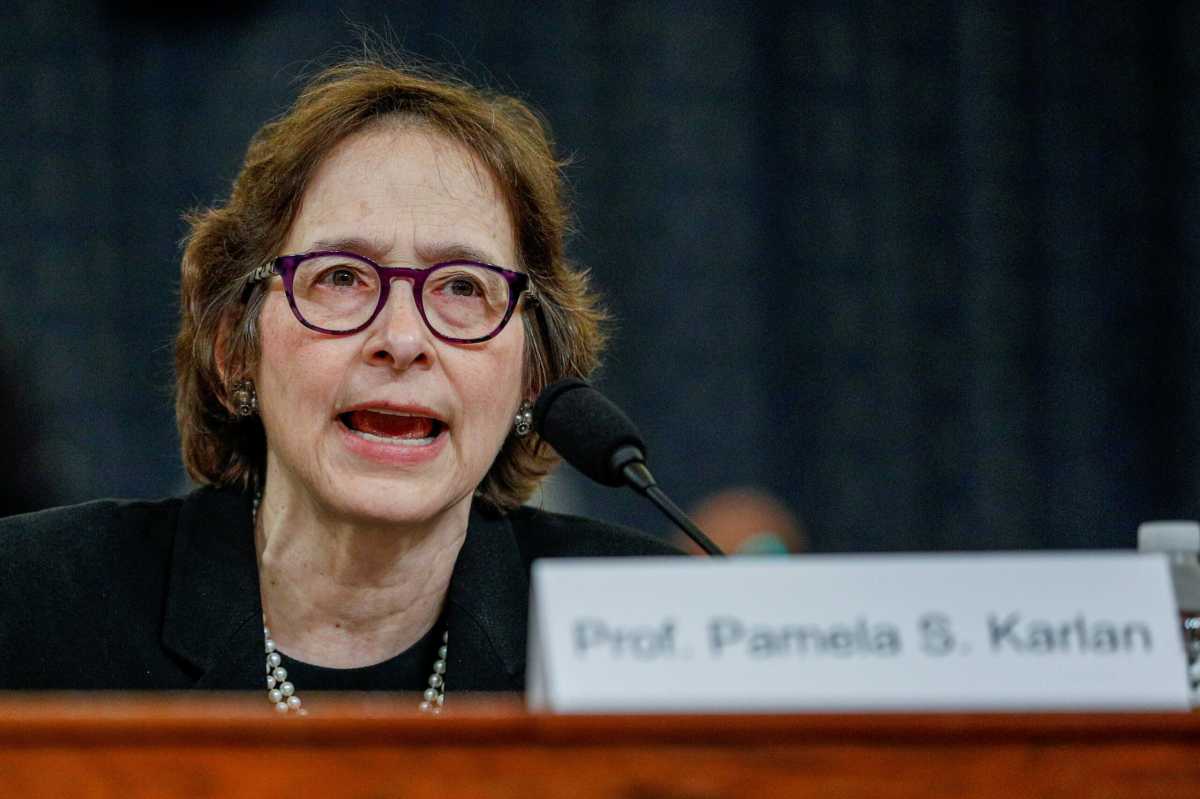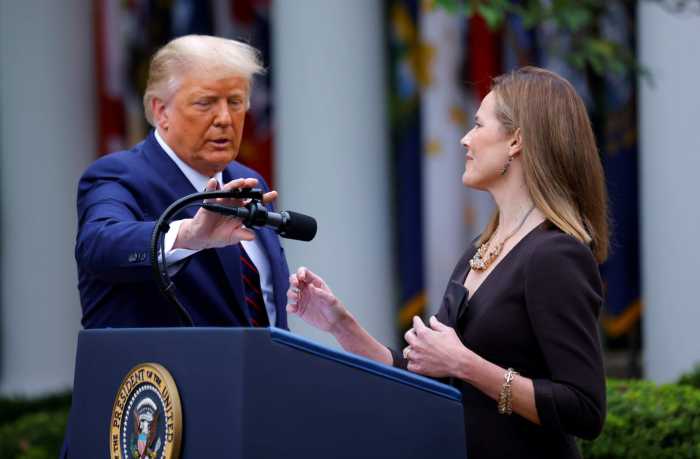Principal Deputy Assistant Attorney General Pamela S. Karlan of the US Justice Department’s Civil Rights Division issued a memorandum to federal agency civil rights directors and general counsels on March 26 explaining how the Supreme Court’s decision from last June 15 in Bostock v. Clayton County affects Title IX of the Education Amendments of 1972.
The memo explains the general statement by President Joe Biden on January 20 in Executive Order 13988 that “laws that prohibit sex discrimination — including Title IX of the Education Amendments of 1972 … along with their implementing regulations — prohibit discrimination on the basis of gender identity or sexual orientation, so long as the laws do not contain sufficient indications to the contrary.”
Title IX provides that educational institutions that receive federal funding may not discriminate “on the basis of sex” in their educational programs. During the Trump Administration, both the Department of Education and the Department of Justice rejected the argument that Title IX extends to sexual orientation or gender identity discrimination claims. The Education Department actually issued a regulation to that effect, rescinding a contrary interpretation that had been issued by the Obama Administration, just days after the Supreme Court’s Bostock ruling.
In Bostock, President Trump’s appointee, Justice Neil Gorsuch, wrote for a 6-3 majority that the ban on discrimination “because of sex” in Title VII of the Civil Rights Act of 1964 extends to such claims because, in the view of the Court, it was impossible for an employer to discriminate against an employee because they are gay or transgender without discriminating because of their sex. In dissent, Justice Samuel Alito protested that the reasoning of the majority’s ruling would apply to a list of about a hundred federal statutory provisions that prohibit discrimination because of sex, which he helpfully appended to his dissent. Title IX is on that list.
Despite the Bostock ruling, the Trump Administration Education Department, which had stopped investigating discrimination claims by transgender students, persisted in arguing that such claims were not covered by Title IX. The Justice Department actually issued a memorandum on January 17, just days before the end of Trump’s term, reiterating this position. Shortly after the Biden Administration began, the Justice Department’s Civil Rights Division issued a letter withdrawing the January 17 memorandum because of its inconsistency with Biden’s Executive Order 13988 and indicated that a new directive would be coming from the Division. Karlan’s Memorandum is that new directive.
There is poetic justice in Karlan issuing the Memorandum because she successfully argued the Bostock case in the Supreme Court in 2019, representing the LGBT plaintiffs asking the Court to interpret Title VII in their favor. Now, as a recently appointed Biden Administration official, she gets to articulate the new administration’s interpretation of that statute in light of her victory in the Supreme Court.
The memorandum added more detail to President Biden’s assertion that Title IX applies to such cases. She pointed out that because of the similarity in wording of Title VII (“because of sex”) and Title IX (“on account of sex”), courts in Title IX cases “consistently look to interpretations of Title VII to inform Title IX,” so “Bostock’s discussion of the text of Title VII informs the Division’s analysis of the text of Title IX.”
Karlan gave several reasons why the Division concluded that Title IX covers these categories of discrimination. First, both Title VII and Title IX apply to “sex discrimination against individuals.” Second, the terminology used could be considered “interchangeable,” and courts explaining Title VII’s ban had even used the phrase “on the basis of sex” in doing so. Third, the reasoning underlying the Bostock decision applies equally to Title IX, which she found to be “consistent with the Supreme Court’s longstanding directive that ‘if we are to give Title IX the scope that its origins dictate, we must accord it a sweep as broad as its language.’”
Karlan also noted that after the Bostock decision, two federal appeals courts had applied its reasoning to rule in favor of transgender litigants under Title IX, and two other circuit courts of appeals had reached similar conclusions prior to Bostock, as long ago as 2016.
Thus, the Civil Rights Division concluded that “the best reading” of Title IX would apply it to sexual orientation and gender identity claims. The division found “nothing persuasive in the statutory text, legislative history, or caselaw to justify a departure from Bostock’s textual analysis and the Supreme Court’s longstanding directive to interpret Title IX’s test broadly.”
She concluded by stating her hope that this memorandum would provide a “starting point” for the various agencies involved to ensure “the consistent and robust enforcement of Title IX, in furtherance of the commitment that every person should be treated with respect and dignity.” Of course, since the memorandum went to all federal agencies, not just the Education Department, it provides guidance for determining the application of Bostock’s reasoning to all the other federal provisions banning sex discrimination.
What the memorandum does not address, however, is how agencies and courts should resolve the hot issue being pushed by Republicans in state legislatures and courts around the country: whether transgender girls and women should be allowed to compete in women’s sports. The \department has at least given a signal in that regard by notifying the USDistrict Court in Connecticut that it was withdrawing a “statement of interest” filed by the Trump Justice Department in a lawsuit by two cisgender high school runners challenging that state’s rules allowing transgender women to compete. Litigation is also pending challenging recent state laws forbidding transgender women from competing. The Biden Administration could quickly take an affirmative position by intervening on behalf of the opponents of those laws.
To sign up for the Gay City News email newsletter, visit gaycitynews.com/newsletter.
































